The 'normal guys' from the UK and US who have given up their day jobs to fight Isis in Syria
Rare photos shows Western fighters working alongside Kurdish forces
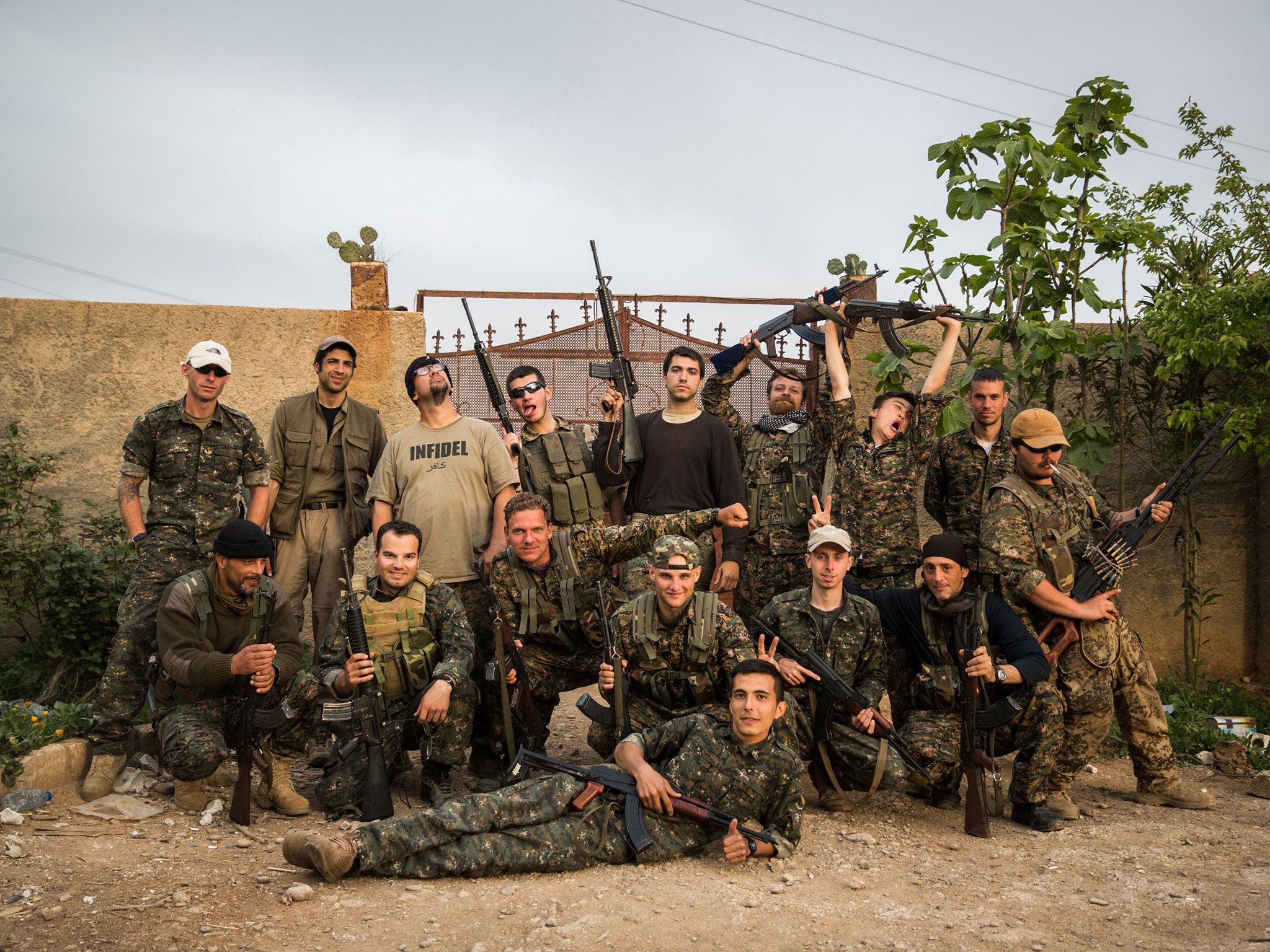
Your support helps us to tell the story
From reproductive rights to climate change to Big Tech, The Independent is on the ground when the story is developing. Whether it's investigating the financials of Elon Musk's pro-Trump PAC or producing our latest documentary, 'The A Word', which shines a light on the American women fighting for reproductive rights, we know how important it is to parse out the facts from the messaging.
At such a critical moment in US history, we need reporters on the ground. Your donation allows us to keep sending journalists to speak to both sides of the story.
The Independent is trusted by Americans across the entire political spectrum. And unlike many other quality news outlets, we choose not to lock Americans out of our reporting and analysis with paywalls. We believe quality journalism should be available to everyone, paid for by those who can afford it.
Your support makes all the difference.A team of foreign fighters hailing from Europe, Canada and the US who made the perilous journey to Syria have been photographed alongside Kurdish fighters battling against Isis.
Uygar Onder Simsek, a documentary photographer, spent a week with about 30 international fighters who joined the People’s Protection Unit (YPG) in the north-western Syrian town of Tal Tamr, north of Hasakeh, near the border with Turkey.
He travelled to Tal Tamr after meeting a Spanish fighter in the Syrian-Turkey border city of Kobane, who advised him many foreign fighters were located there.
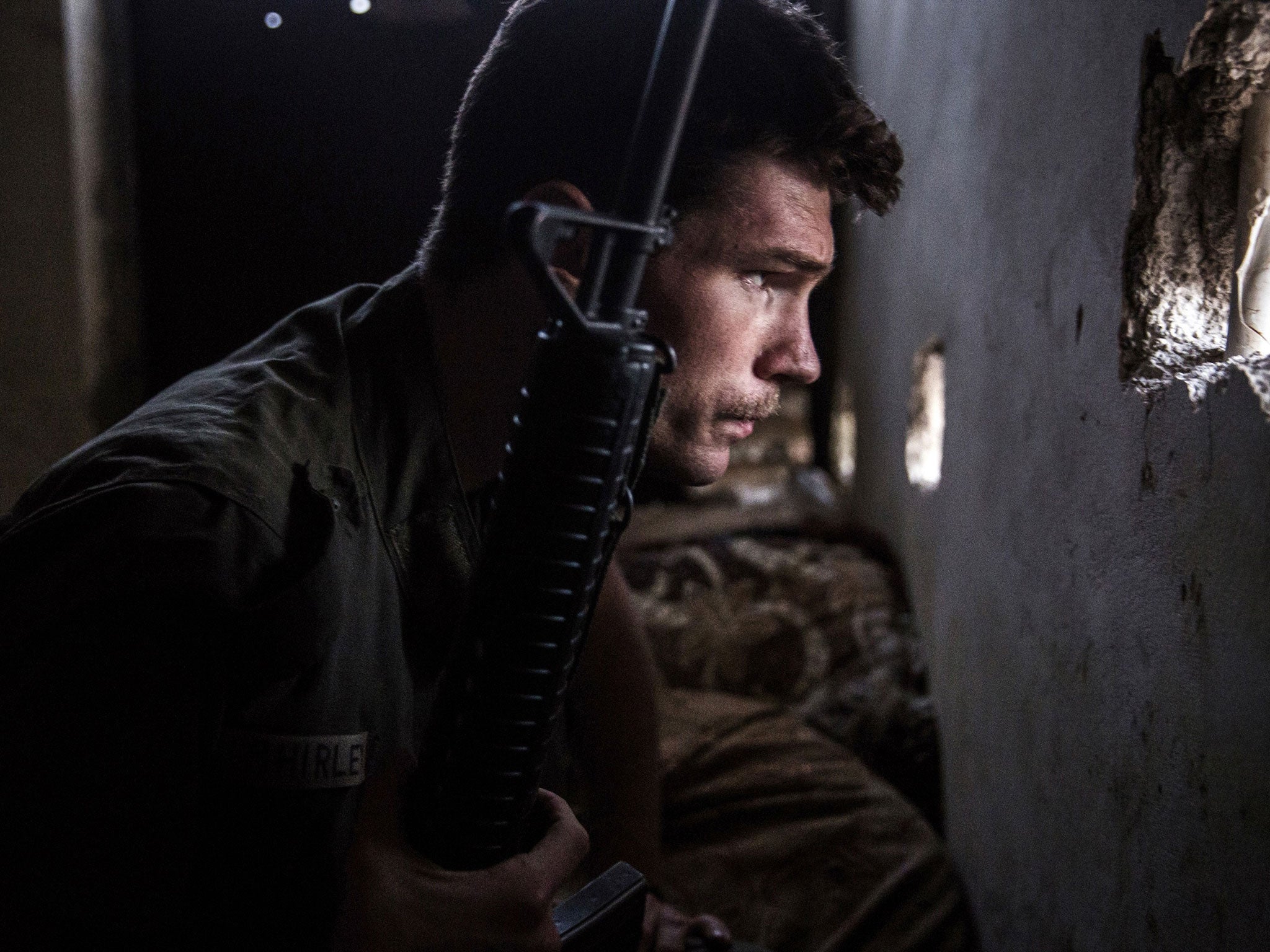
Mr Simsek’s collection presents a snapshot of the day-to-day activities involved in their new lives, with men pictured training and guarding positions in the midst of clashes with extremist militants. Many are from Britain and America and include former servicemen and US Marines, but others have no prior combat experience whatsoever.
He said most of the “brave” men had been there for at least a month, while others had arrived three or four months earlier.
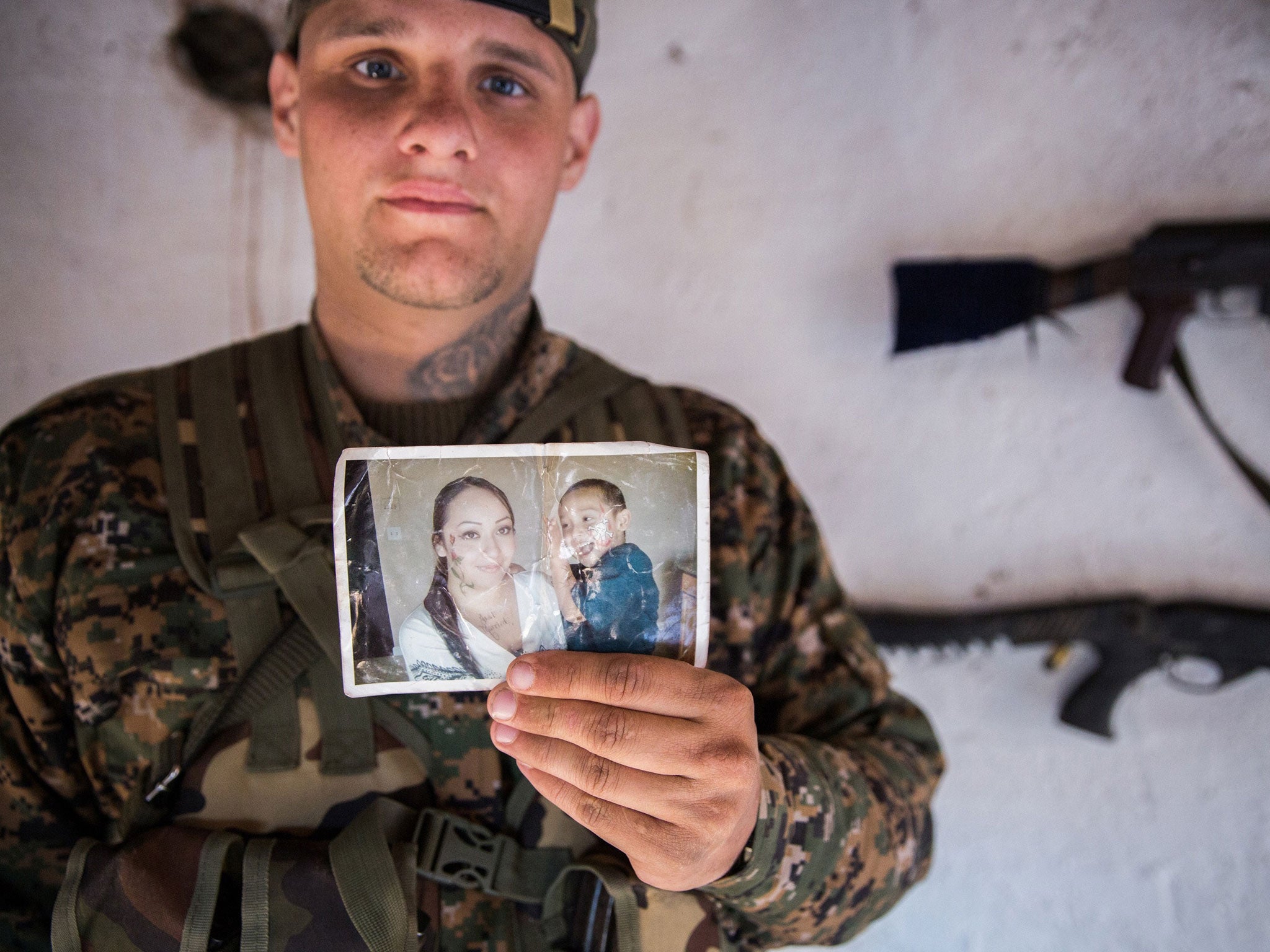
Mr Simsek told The Independent: “Many of them have a certain amount of time to spend there, so they will go back [home], and a few of them want to stay until Isis is gone or they are dead. Some international fighters have come and left already. I met people from Spain, Germany, New Zealand, China, France, the UK, the US and Canada while I was there.
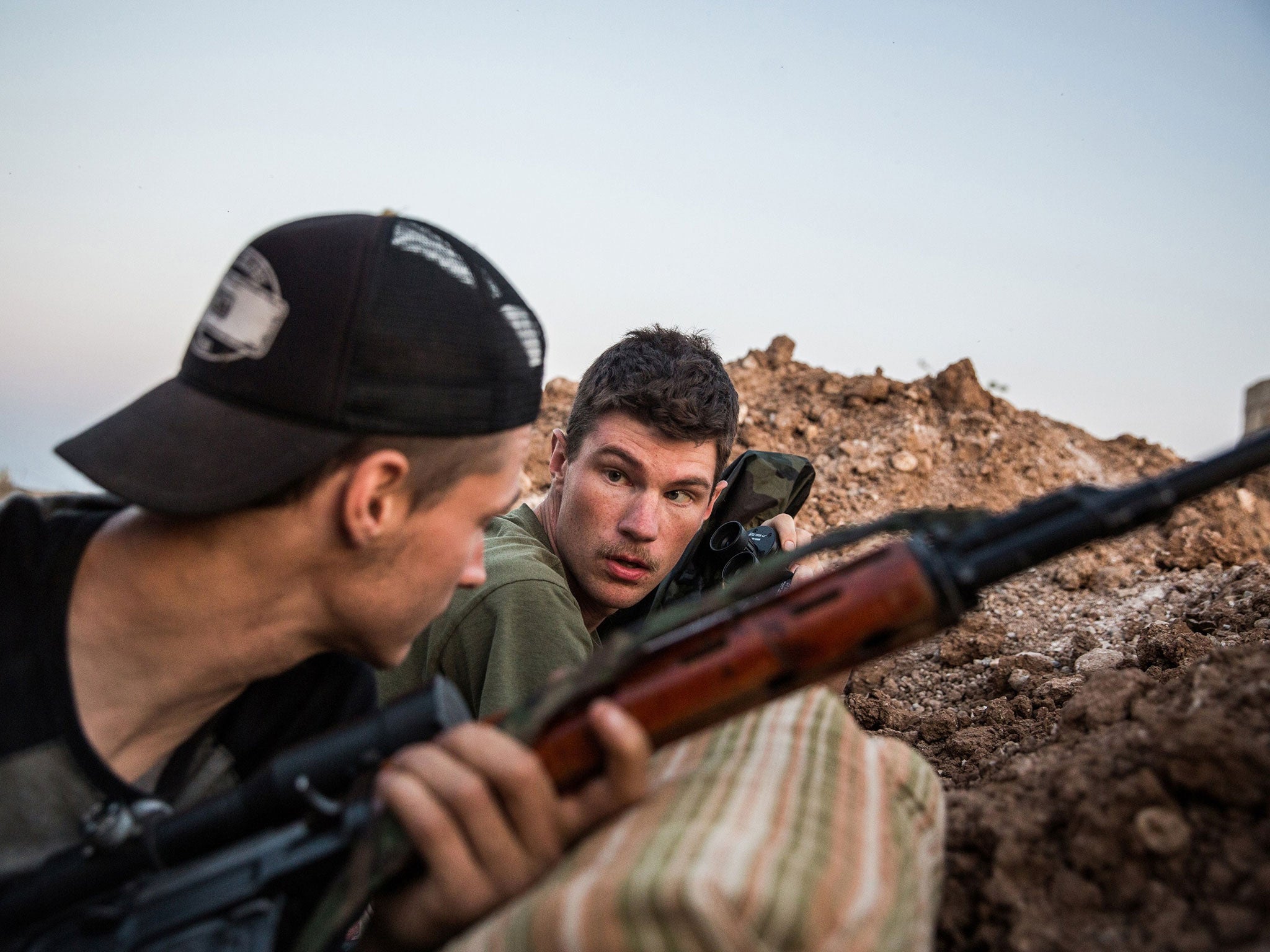
“I would say half of them are ex-military members, some of them have some experience with guns because of personal interests, for example hunting, and a few of them had zero combat experience." Some of the unexperienced men included a British farmer and a former graffiti artist from the UK.
"They are given two weeks of military training by the YPG."
One 28-year-old fighter from the UK, nick-named by Kurdish fighters as Hewal Baran, was pictured resting his gun on his shoulder in a field as he fought alongside the YPG. He is believed to be a former city worker who left Britain to join the fight shortly before Christmas.
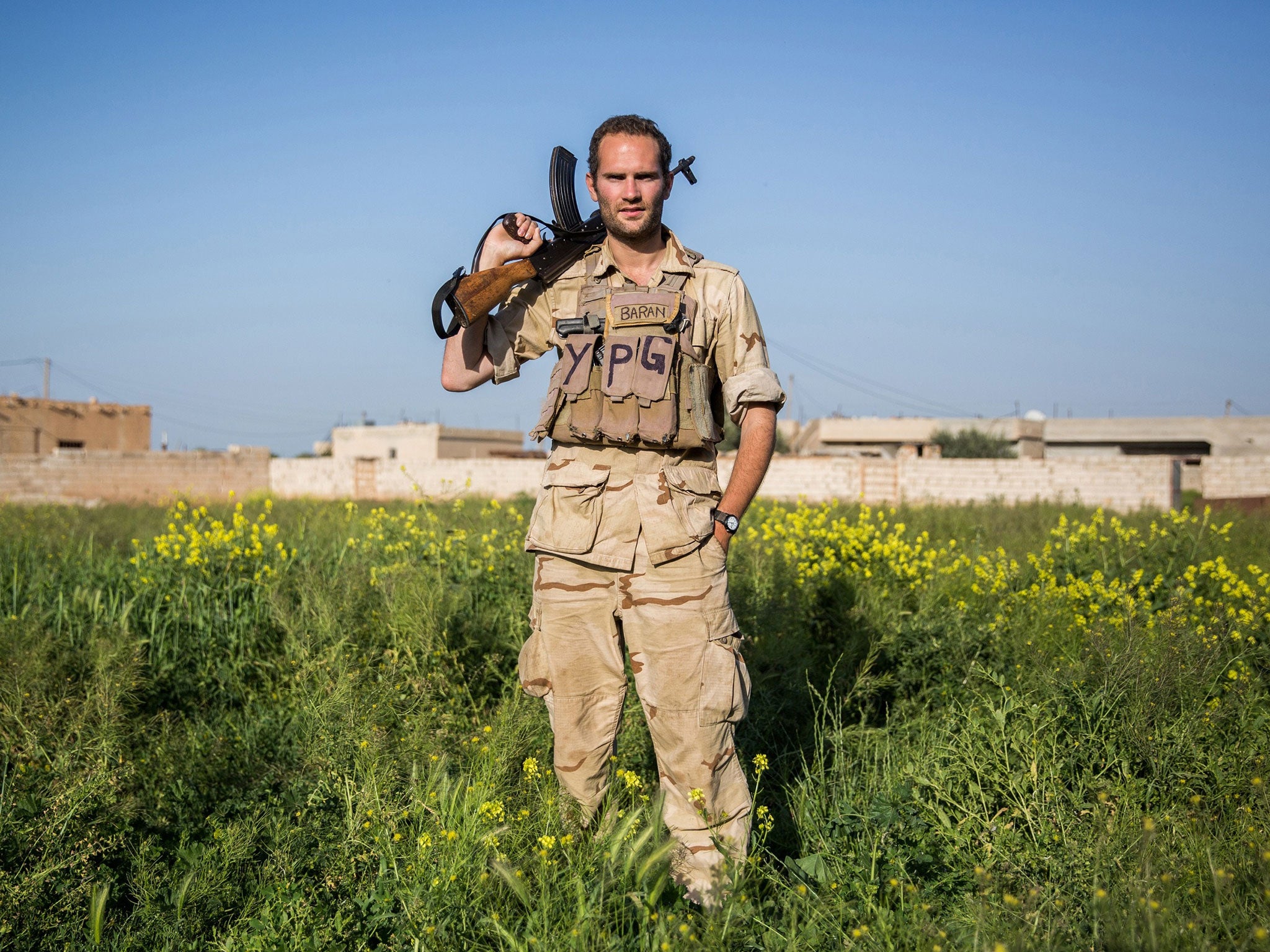
Another fighter appeared relaxed as he posed with his machine gun, dressed in full combat gear. The men are joined by a youthful looking 67-year-old Canadian fighter, who is seen play-fighting with another man and posing with his gun.
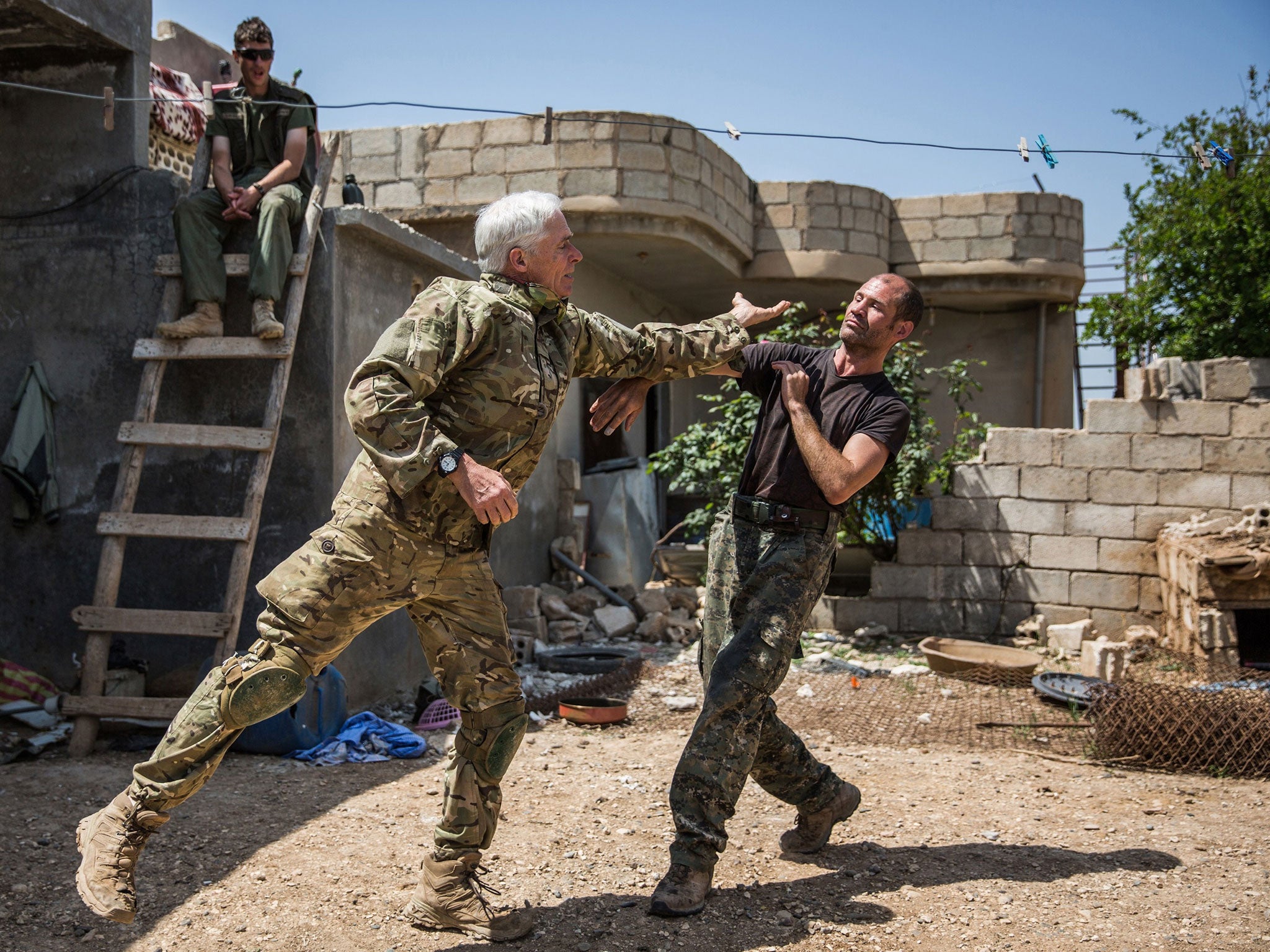
Mr Simsek said foreign fighters are mostly assigned together in groups because of the language barrier. “There aren’t many English speaking Kurdish fighters so that’s why they mostly keep them together, but all the international fighter troops have at least one translator speaking English.”
Hundreds of people from the West are believed to have left their countries to assist Kurdish forces in Syria and Iraq.
In February, a 19-year-old British soldier fled his army barracks in Cyprus to join Kurdish forces fighting against Isis in northern Iraq. The teenager, who has not been named, sent a message to his family after arriving in Iraq via Dubai saying that he was with British and Canadian men and was safe.
"I don't know how to explain it to you but I really want and need to do this and I will be safe,” he said in his message. "I have good skills and I can speak the language I can help these people and help with this fight."
At least 100 British soldiers are among forces countering Isis’ offensive in the Kurdish region of Iraq.
You can find more examples of Mr Simsek's work here
Join our commenting forum
Join thought-provoking conversations, follow other Independent readers and see their replies
Comments